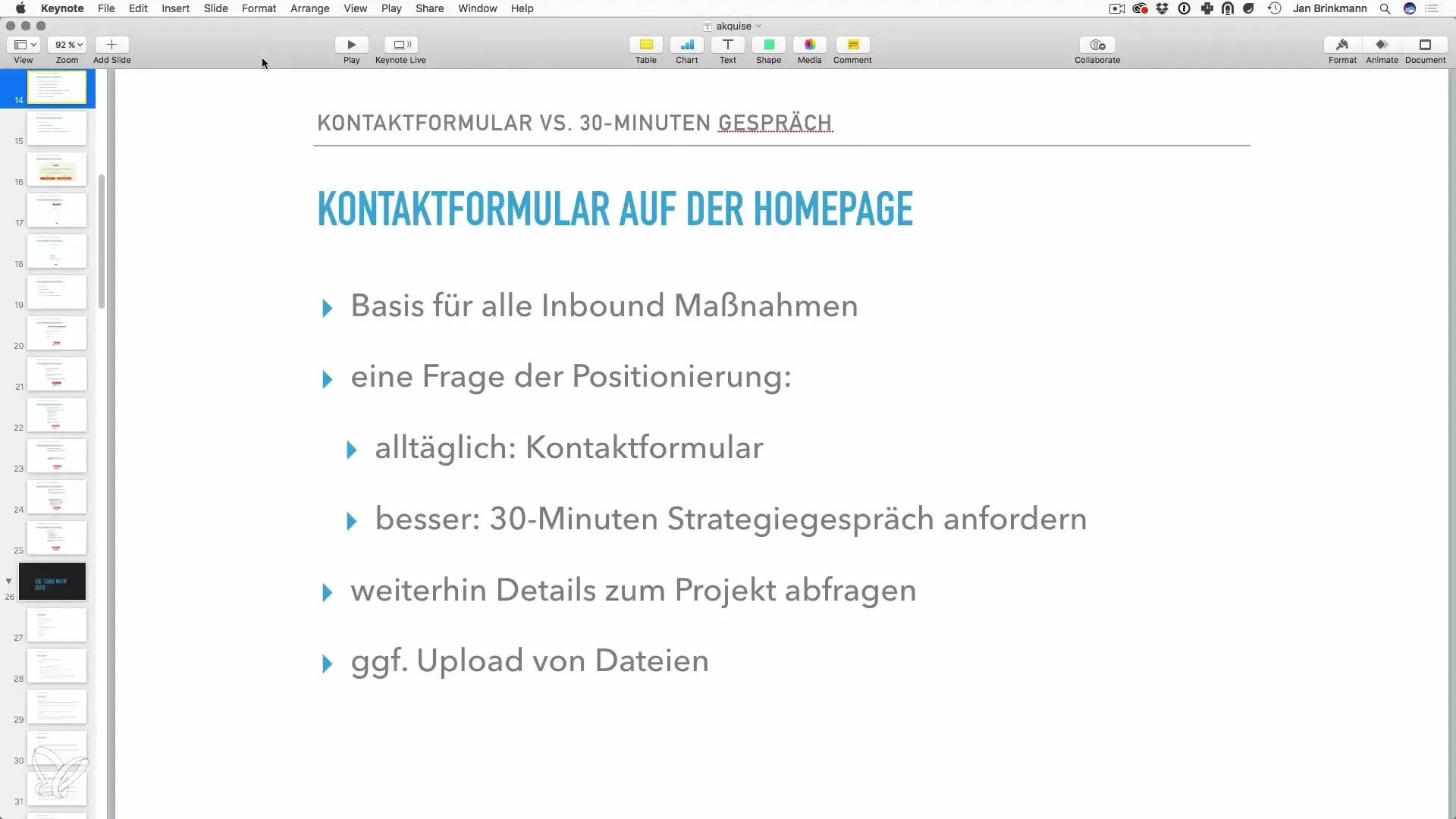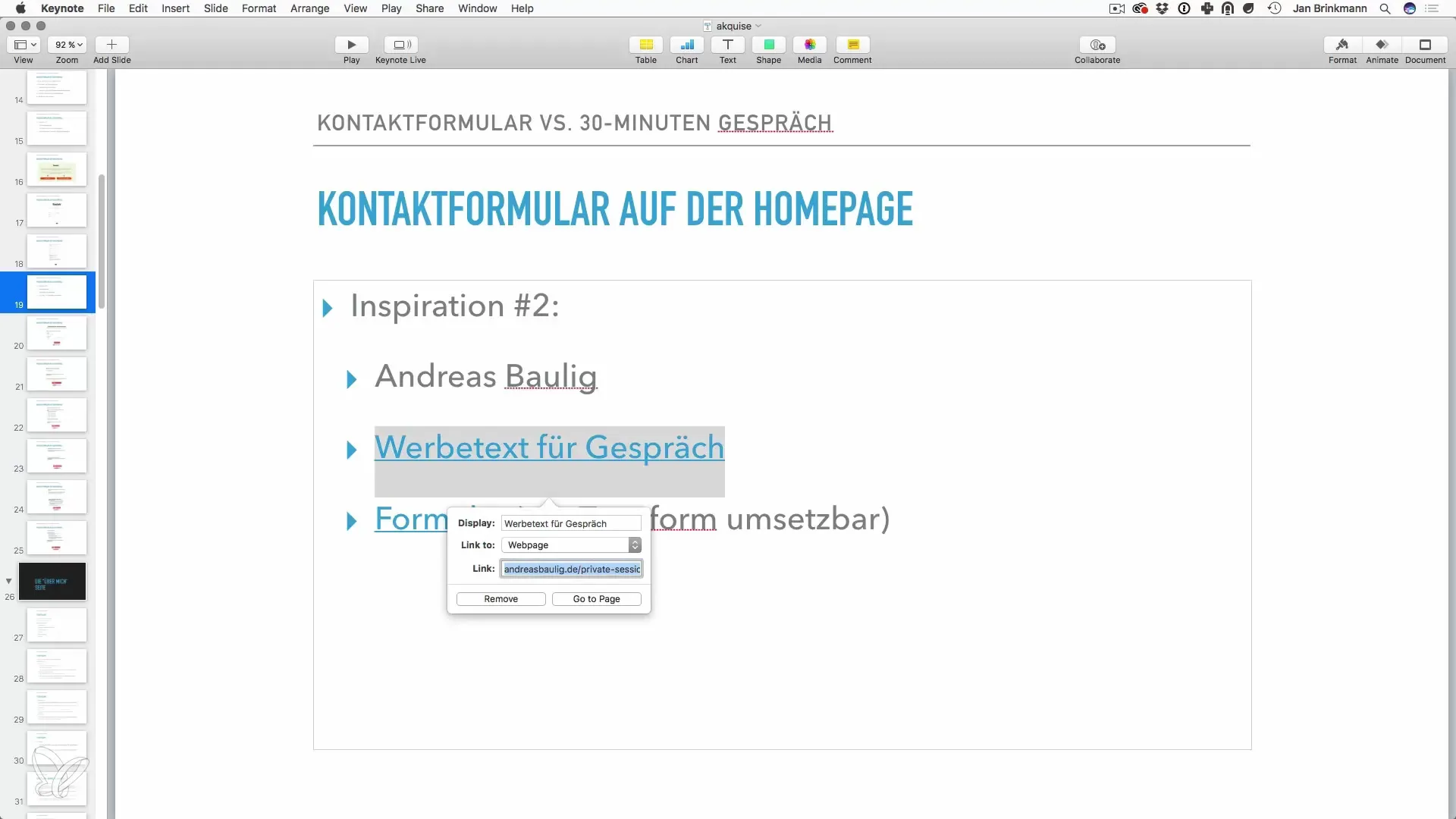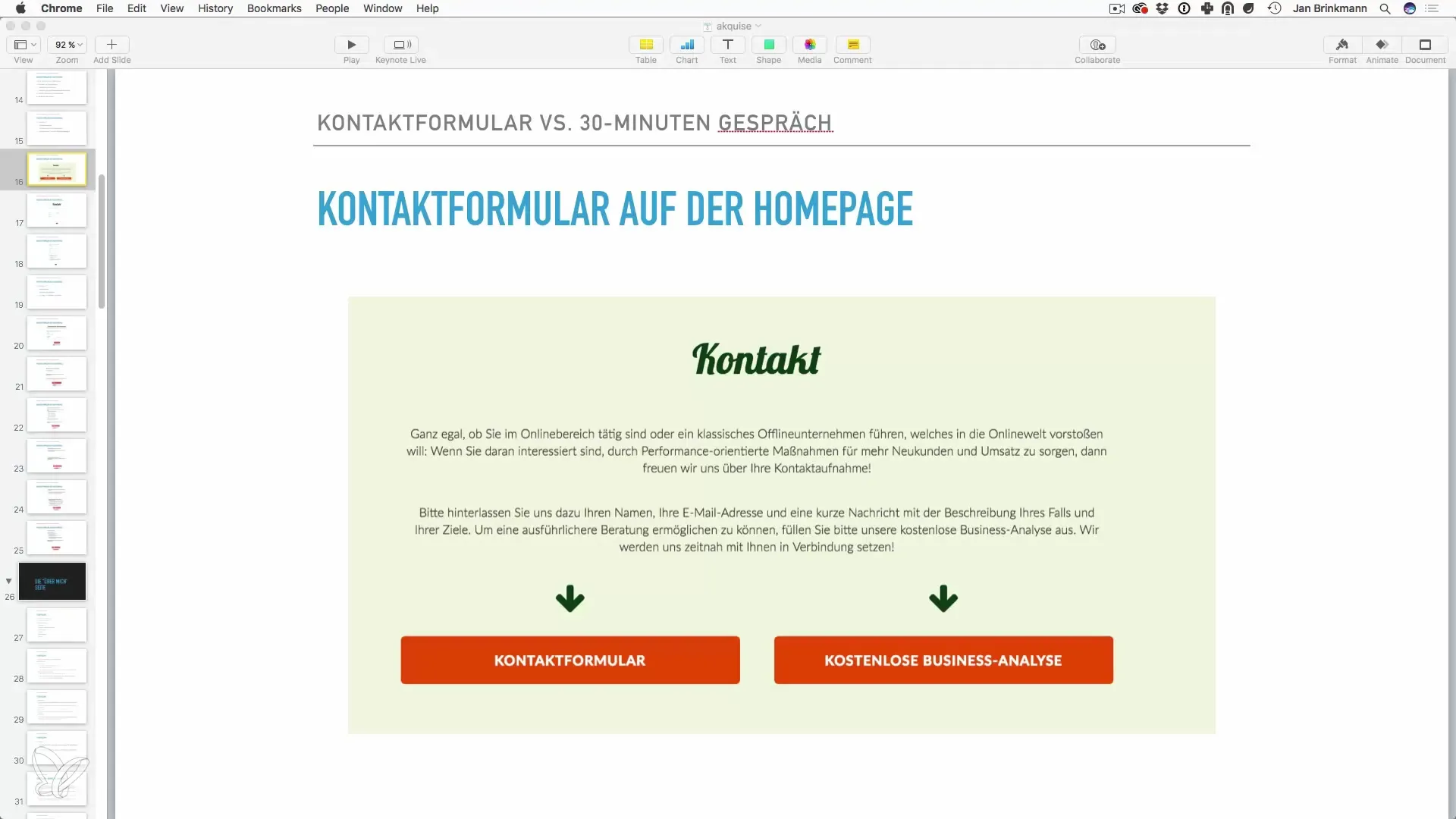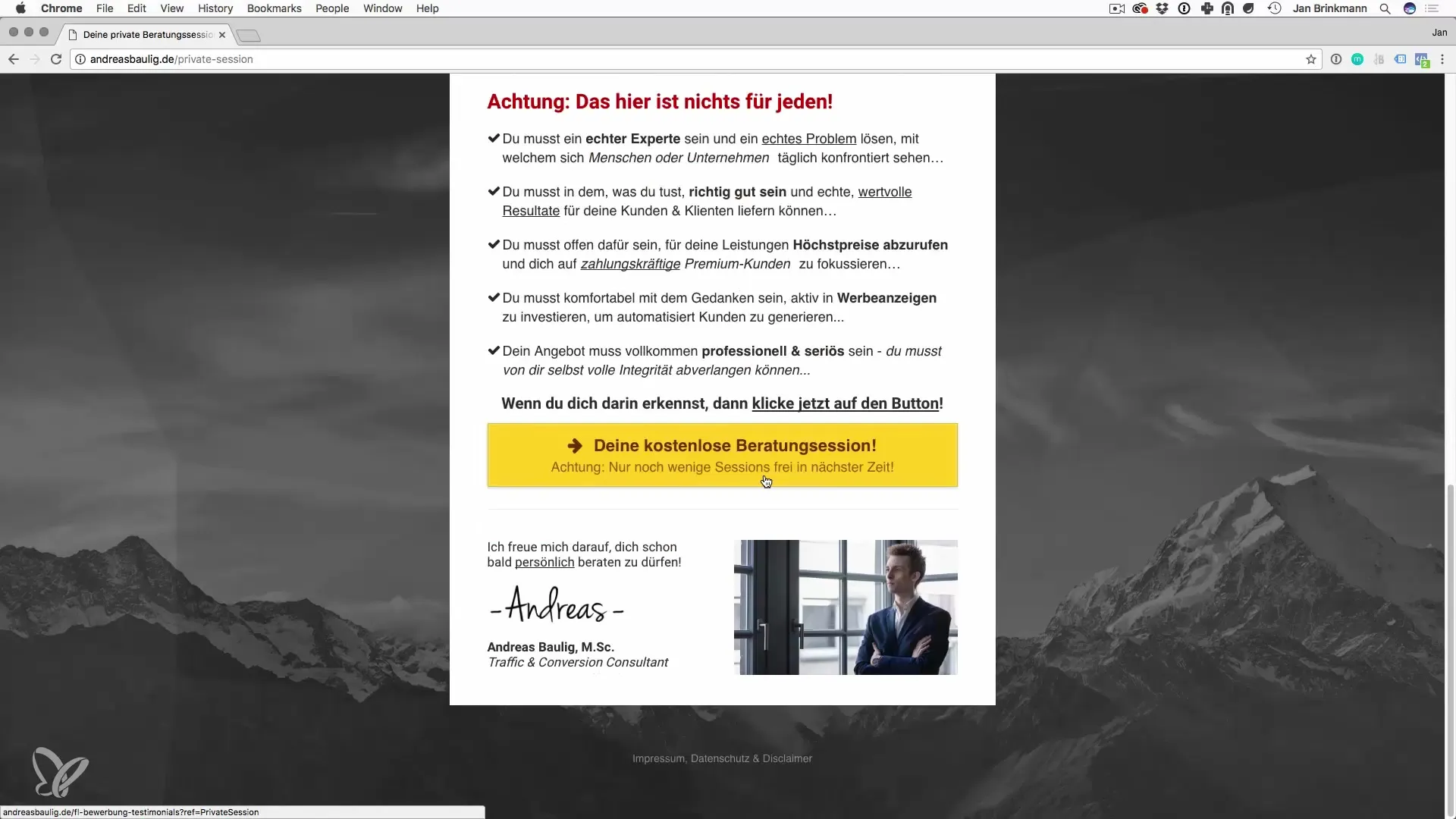The way you approach potential clients significantly influences your success as a freelancer. A simple contact form on your website is often the first hurdle that a prospective client must overcome to get in touch with you. However, it often ends up being a blank form that goes unfilled. There are ways, though, to design your contact form so that it appears more attractive and of higher quality – and this can be the difference between a minimal transaction and a valuable service. In this guide, we'll clarify how you can transform your contact form into an effective tool for client acquisition.
Key Insights
- A simple contact form is often unappealing.
- Positioning it as an application form for a 30-minute strategy call increases interest.
- A personal approach and valuable content build trust and encourage form completion.
- Detailed questions in the form can help you better understand your conversation partner.
Step-by-Step Guide
Step 1: Understand the issues with a simple contact form
A friendly disposition is often not enough to motivate potential clients to take action. The typical contact form that you can find on many websites often looks the same and therefore offers little incentive. You must understand that many interested parties initially feel skepticism when their data is requested.

Step 2: Strategically position your contact form
Instead of just writing a harmless message, position your form as an "application form for a 30-minute strategy call." This conveys the message that the client should not only leave a name but can actively participate in a constructive dialogue.
Step 3: Use psychological incentives
Offering your potential clients the opportunity to test the conversation by offering to pay them for an hour, should they not feel comfortable after the call, creates an incentive to fill out the form. This increases the likelihood that they will leave their contact information.
Step 4: Request relevant information
An effective contact form should request basic information – such as name, email address, and phone number – but should also ask project-related questions about budget and goals. You can use this information to prepare optimally for the conversation.
Step 5: Present the form clearly and concisely
You can also provide the option to upload project details. However, avoid making too many demands, as this may deter potential clients. Ensure that the form remains clear and is not overloaded with questions.
Step 6: Explain the added value of the conversation
Clearly inform your clients about what they can expect from the conversation. Highlight that the 30-minute approach is an investment in their own business idea rather than just a mandatory program.

Step 7: Use practical examples
Utilize concrete examples of successful approaches. A good source of inspiration is marketing agencies that always present their appearance professionally. Pay attention to the phrasing used there to emphasize the value of the service and to motivate clients to fill in their details.
Step 8: Provide clear expectations
Do not misrepresent reality to the client, but rather provide a transparent insight into what is to come. Avoid getting caught up in theoretical jargon; instead, speak clearly and directly about the steps you will take in the process.
Step 9: Address the topic of budget directly
Inquire about the budget to get a feel for what is realistic for the client. Transparent communication on this point shows that you understand the value of your service and can adjust the price accordingly.
Step 10: Ask about specific requirements
Allow potential clients to address specific points that are important to them. This will give them a sense of control and make them more likely to complete the form.
Step 11: Keep it simple and clear
Your form does not need to contain lengthy checklists. Smaller, targeted questions often lead to better results. Keep the user engaged in a simple conversational flow so they can enter their details as quickly as possible.

Step 12: Link to high-quality content
Do not lose sight of the fact that you should provide valuable content. Links to blog articles or case studies can be the final push that convinces interested parties to trust you with their data.

Summary – Contact Form or 30-Minute Consultation: Targeted Client Engagement for Freelancers
A well-positioned contact form is an important tool in your acquisition strategy. By transforming a conventional contact form into an application for a free consultation, you can capture the interest of your target audience. Strategic questions and clear expectations build trust and increase the likelihood that your form will be completed.
Frequently Asked Questions
What is the difference between a contact form and a 30-minute consultation?A consultation provides direct value and invites clients to engage in dialogue.
How can I increase the likelihood that the contact form will be filled out?Position it as an application form for a free strategy call.
What information should be requested in the contact form?Name, email address, phone number, and project-related questions about the budget.
How can I show clients that the form is important?Explain the value of the consultation and present clear expectations.


